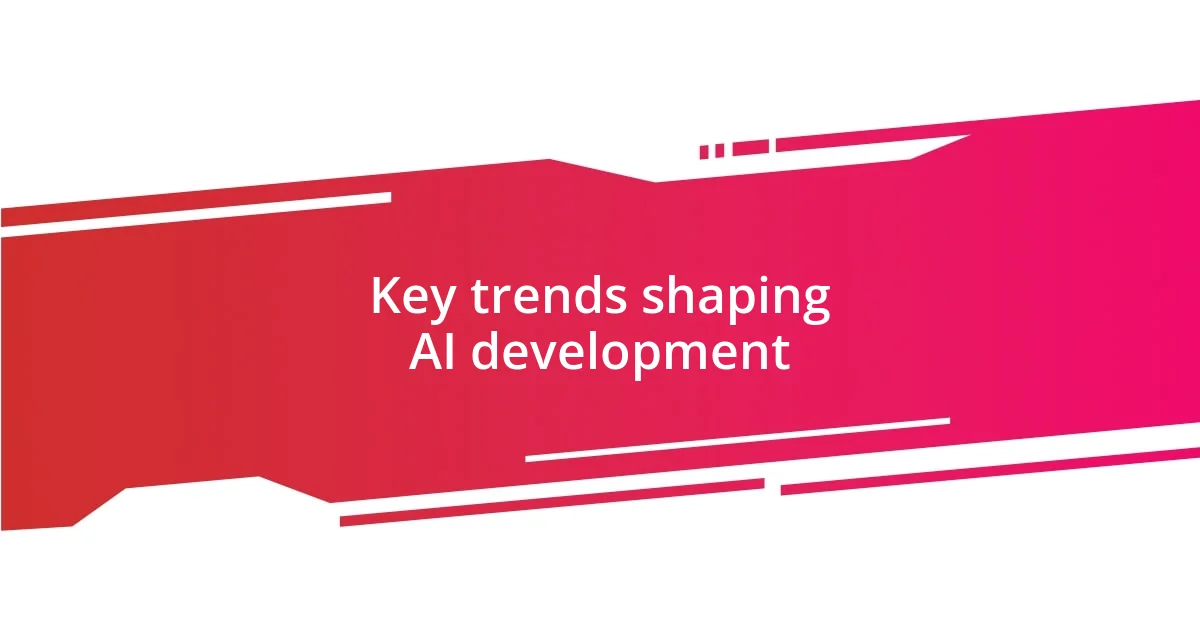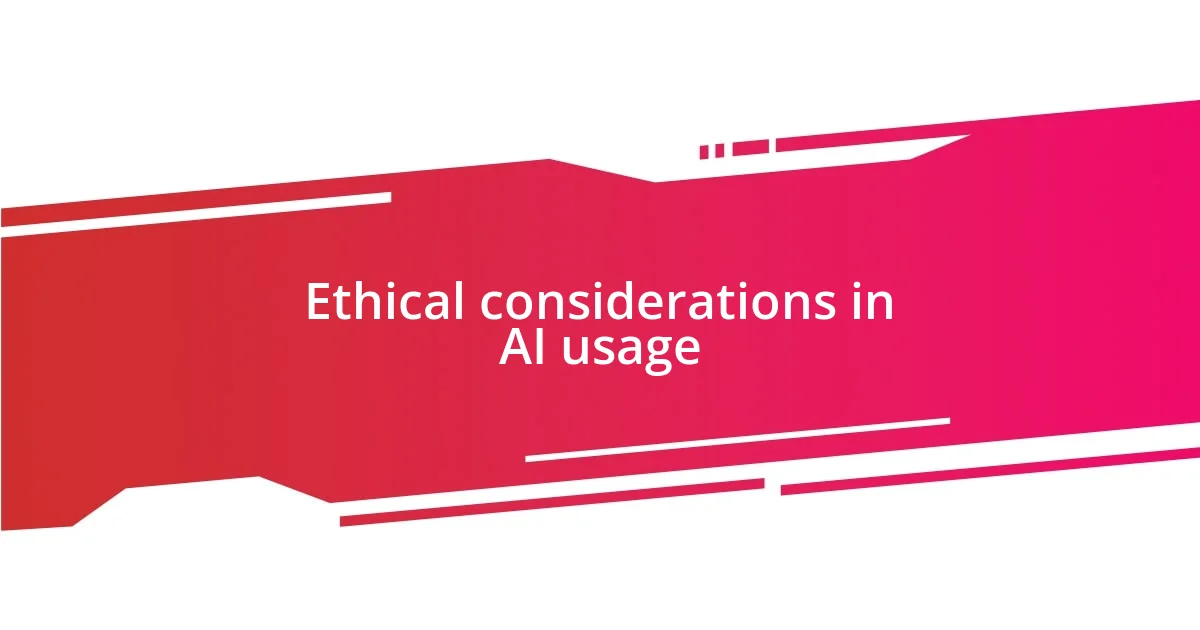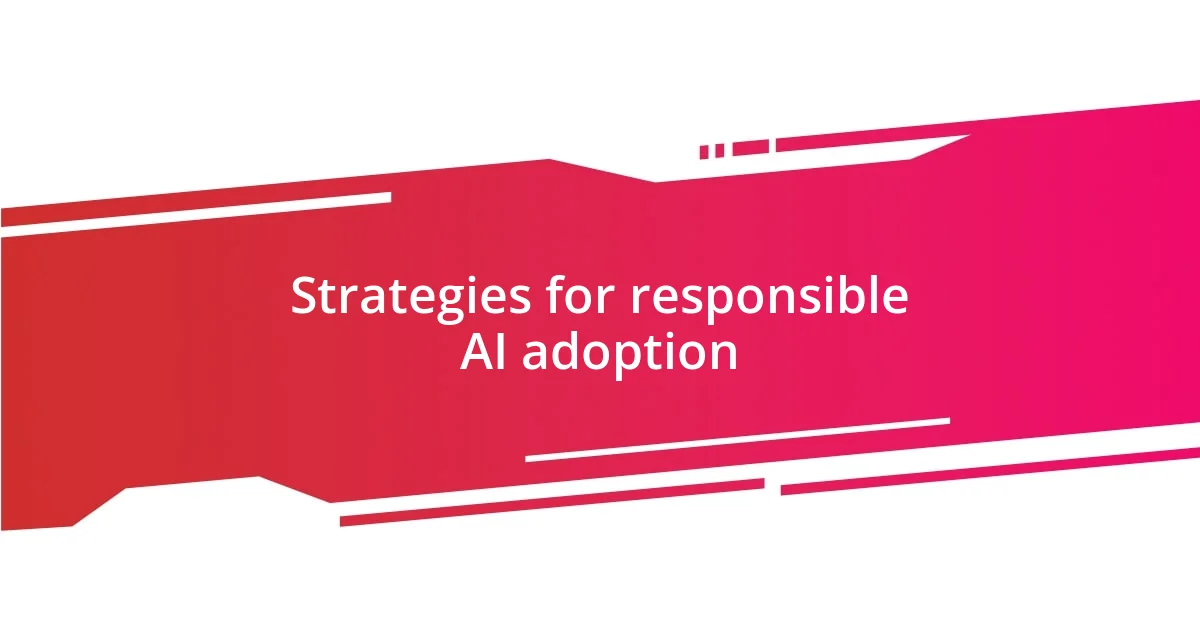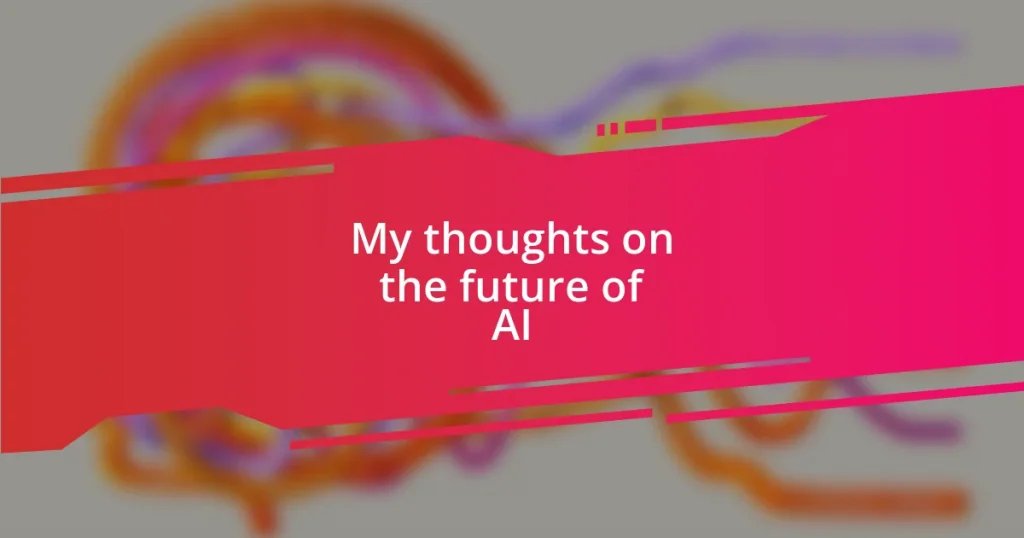Key takeaways:
- The emphasis on ethical considerations in AI development is crucial, highlighting issues like bias, privacy, and accountability.
- Integration of AI with emerging technologies, such as IoT and blockchain, enhances efficiency and opens new avenues for innovation.
- Adopting an interdisciplinary approach, continuous education, and community involvement are essential strategies for responsible AI adoption.

Key trends shaping AI development
One key trend I’m seeing in AI development is the increasing emphasis on ethical considerations. I often find myself reflecting on situations where AI could be misused, like in facial recognition. It raises an important question: how do we balance technological advancement with ethical responsibility? The more I engage with this topic, the more I realize it’s crucial for developers and users alike to prioritize transparency and fairness in AI.
Another trend that excites me is the ongoing integration of AI with other emerging technologies, such as IoT and blockchain. I remember attending a tech conference where a speaker demonstrated how smart devices could communicate via AI to optimize energy consumption. It felt like we were stepping into the future right then and there! Combining AI with these technologies not only enhances efficiency but opens up new avenues for innovation that we’ve barely scratched the surface of.
Additionally, there’s a surge in the use of AI for personalization. Just think about how platforms like Netflix or Spotify craft recommendations based on your preferences. It’s fascinating—and a little eerie—how algorithms can analyze our behavior and suggest content that feels tailor-made for us. I often wonder, are we becoming too reliant on AI for our entertainment choices? But, ultimately, this trend highlights the need for AI to understand human nuance and context more effectively.

Ethical considerations in AI usage
When I think about the ethical considerations in AI usage, I can’t help but feel a deep sense of responsibility. Issues like bias and privacy come to the forefront. I’ve personally witnessed how biased algorithms can perpetuate stereotypes, leading to unfair treatment of certain groups. The idea that a few lines of code could impact someone’s life so drastically is chilling. It makes me strongly believe that it’s vital for companies to implement rigorous testing and feedback loops to ensure their AI systems are fair and unbiased.
- Bias and Fairness: AI can unintentionally inherit biases from data, affecting decisions related to hiring or law enforcement.
- Privacy Concerns: With AI processes often requiring large datasets, the risk to individual privacy becomes significant, raising serious questions about consent.
- Accountability: Who is responsible when an AI system makes a harmful decision? Defining accountability is essential to building trust in AI technologies.
- Transparency in Algorithms: Understanding how AI arrives at decisions should be a priority to ensure users can assess fairness and reasoning.
I often think about the implications of these ethical gaps. Just the other day, I was in a discussion with friends about how AI tools are being used in hiring. The idea that algorithms could inadvertently filter out deserving candidates because of flawed training data struck a chord with us. This isn’t just about tech; it’s about real people’s futures riding on decisions made by machines. It feels imperative for us to collectively push for ethical standards in AI development to foster not only innovation but also trust and integrity.

Strategies for responsible AI adoption
One effective strategy for responsible AI adoption is fostering an interdisciplinary approach. By engaging professionals from diverse fields like ethics, psychology, and law in AI development, we can create systems that consider the broader societal implications. I remember brainstorming with a diverse team on how to enhance user experience in an AI application. It was fascinating how perspectives from psychology helped us understand user behavior more deeply, ensuring our AI was not just functional, but also considerate of ethical guidelines.
Another vital aspect is continuous education and training for everyone involved in the AI lifecycle. I’ve seen firsthand how crucial it is to keep teams updated on best practices and ethical standards. A recent workshop I attended emphasized case studies that highlighted potential pitfalls in AI implementation. It made us all realize that staying informed isn’t a one-time effort but a continuous journey that encourages accountability and informed decision-making at every level.
Finally, I believe in the power of community involvement. Encouraging user feedback and involving communities in the AI design process can lead to more inclusive technologies. I once participated in a community forum where we discussed the impact of a local AI initiative on our daily lives. The insights shared were invaluable and underscored how vital it is to listen to those affected by AI systems. After all, it’s the users who truly understand the nuances of their own needs and can guide developers in creating truly responsible technologies.














